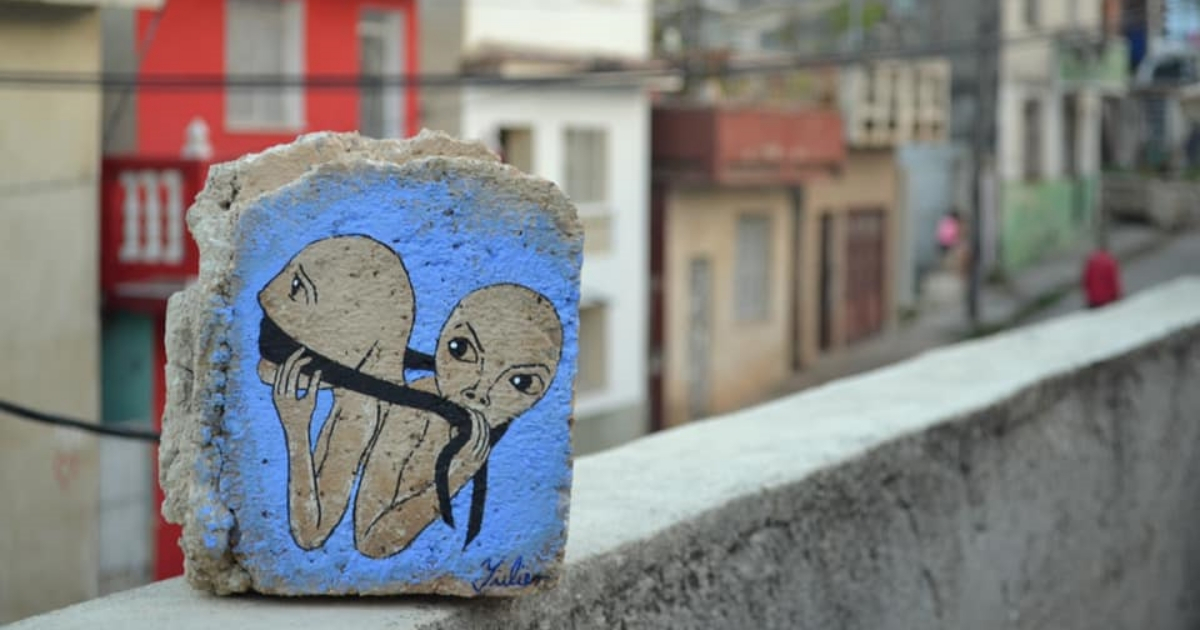
The Mexican non-governmental organizationArticle 19 documentmore than 200 attacks on journalists and activists in Cuba during the first half of 2022.
In total, they committed125 attacks against 61 journalists (28 women and 33 men) and 90 attacks against 51 human rights activists(23 women and 28 men), the NGO specified through the report“Freedom of expression in Cuba: semiannual analysis in figures from January to June 2022”.
The most common attacks against independent journalists were house arrests with 45 events, official summonses (20), suppression of internet service (16) and arbitrary arrests with 14 events of this type, the report states.
Meanwhile, the most frequent attacks against activists were arbitrary arrests with 40 events, 10 deprivations of people's freedom due to events linked to 11J 2021, 10 house arrests, eight immigration regulations and four people who claimed to have been tortured
Article 19 considers that these attacks represent “acontinuation of the demobilization and intimidation strategy against those who carry out coverage of daily life in Cuba and as a continuity of the effects of the protests of June 11, 2021.”
In this way, house arrests, in the case of journalists, remain a fundamental control tool, while subpoenas are classified as a warning resource, during which legal proceedings are threatened.
Restrictions on Internet access have increased as a way to hinder information work within the country, while arbitrary detentions have been an element in decline due to the reaction it provokes in spaces critical of the Cuban regime.
From a geographical point of view, 71% of the attacks against journalists were concentrated in Havana, the remaining 29% were distributed among nine other provinces.
In the case of activists, 67% of the attacks are concentrated in Havana, then 21% of the attacks are in Villa Clara and the remaining 3% are distributed among seven different locations.
The attacks on journalists and activists had various causes linked to their reporting work, such as the attempts to boycott the San Remo Festival; the pressure on airlines and hotel companies to follow the guidelines of entry restrictions to Cuba for critical people, as well as the business that these companies do with the government; the questions about the conditions that caused the explosion at the Saratoga hotel and the accusations of the forced departure of journalists and activists from the country.
The attackers against reporters belong mostly to the Department of State Security (77%), and officials from the company ETECSA are beginning to stand out, who are beginning to gain notoriety over the National Revolutionary Police and the Directorate of Identification, Immigration and Immigration, exercising the 12.8% of attacks against the press.
Regarding activists, 75% of the attacks come from State Security agents.
Repression against activists and independent journalists has intensified in recent months in Cuba, on the eve of the entry into force of the new Penal Code.
A few days ago, the Cubalex organization condemned the threats and coercion of State Security against independent Cuban journalists,forcing them in recent times to abandon their jobs.
Cubalex highlighted thatresignations are not spontaneous and in all of them a pattern is observed in which phrases such as: “Under pressure and blackmail we have been forced to cease our project” prevail; “I leave because others force me”; “I will not be allowed to leave the country until I meet certain conditions required by State Security.”
What do you think?
COMMENTFiled in: